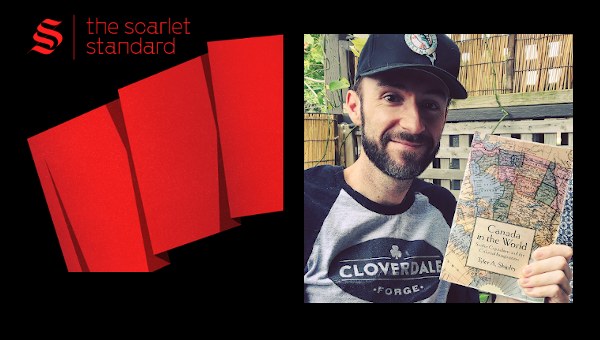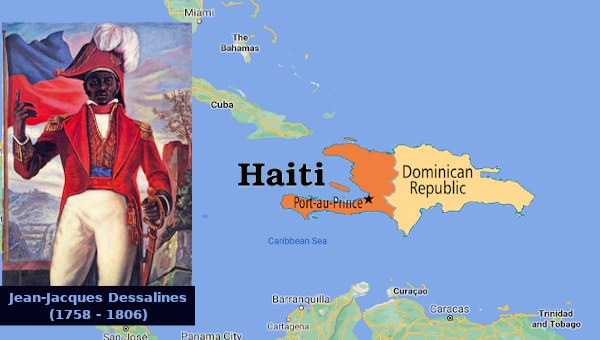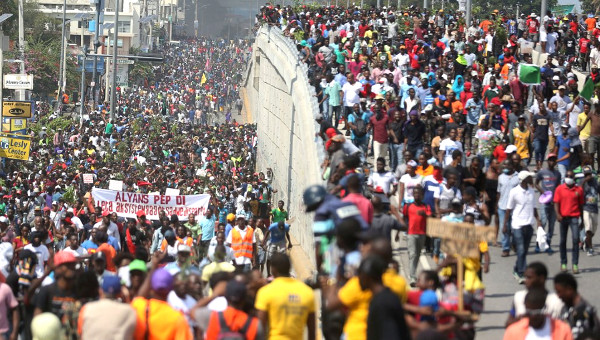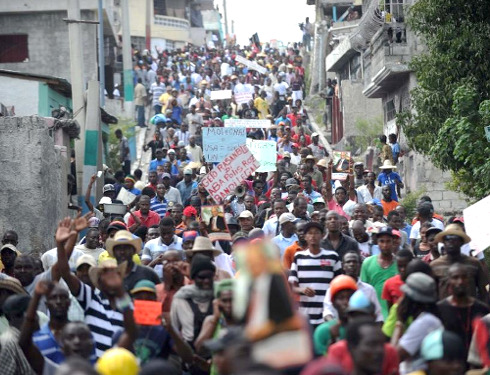The Coup D’État in Haiti: Ten Years Later
Toronto — 24 February 2014. Canada was a party to the 2004 coup in Haiti against the democratically elected government of President Jean-Bertrand Aristide. Many of us are not aware … Watch video »
Toronto — 24 February 2014.
Canada was a party to the 2004 coup in Haiti against the democratically elected government of President Jean-Bertrand Aristide. Many of us are not aware of this assault on the self-determination of the Haitian people.
“On Jan. 31 and Feb. 1, 2003, Jean Chrétien’s Liberal government organized the ‘Ottawa Initiative on Haiti’ to discuss that country’s future. No Haitian officials were invited to this assembly where high-level U.S., Canadian and French officials decided that Haiti’s elected president ‘must go,’ the dreaded army should be recreated and that the country would be put under a Kosovo-like UN trusteeship.”
— Yves Engler, writer, journalist and international solidarity activist.
Moderated by Kevin Edmonds. Presentations by:
- Mario Joseph is a Haitian human rights lawyer. Since 1996, he has led the Bureau des Avocats Internationaux (BAI) in Port-au-Prince, which represents political prisoners, poor people, and victims of political violence. In 2006, The New York Times called Joseph “Haiti’s most prominent human rights lawyer.”
Joseph was the lead lawyer for the victims in the prosecution of the BAI’s most successful case, the Raboteau Massacre trial. The trial was described by a United Nations expert as “the longest and most complex” in the history of the Haitian judicial system. - Dr. Melanie Newton is a professor at the University of Toronto specializing in the social and cultural history of the Caribbean and the history of slavery, gender and emancipation in the Atlantic World.
Dr. Newton’s presentation deals with the discriminatory ruling that strips all Dominicans of Haitian origin, born from 1929 onwards, of their Dominican citizenship. This recent ruling by the Constitutional Court in the Dominican Republic will leave an estimated 250,000 people stateless. This is in direct contravention of the UN Convention on the Reduction of Statelessness of which the Dominican Republic is a signatory.
Organized by the Toronto Haiti Action Committee.
Other videos dealing with Haiti:
- Haiti: Solidarity and Social Justice (Feb. 2012)
- From Honduras to Haiti (Apr. 2010)
- Relief, Occupations and the Haiti Crisis (Feb. 2010)
- Haiti: Damming the Flood (Jun. 2008)





